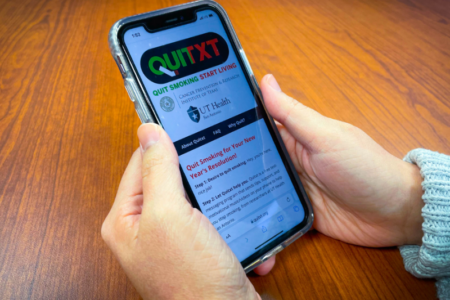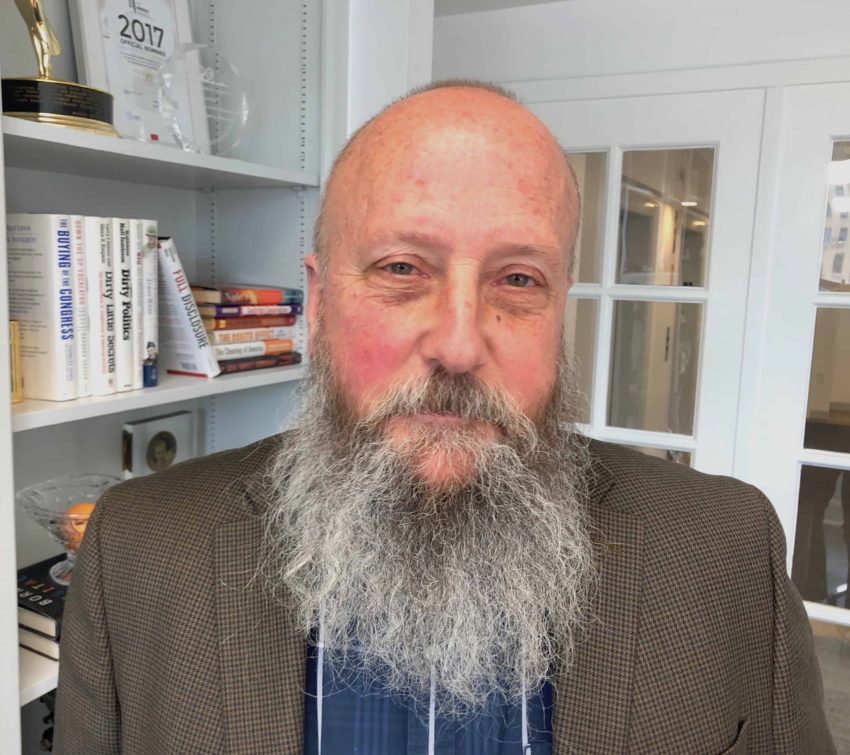
Share On Social!
Having been in the industry for over 40 years, Jim Morris is no newcomer to journalism.
He’s worked at several news organizations across Texas and spent two decades at the Center for Public Integrity, a news nonprofit in Washington, D.C.
In August 2021, he started Public Health Watch, a nonprofit investigative news organization that seeks to hold systems accountable and expose threats to the safety and wellbeing of the country.
As the Executive Director and Editor-in-Chief of a virtual news organization, Morris faces some challenges.
But in the end, it’s worth it to be able to help advocate for workers’ health and expose people to the human stories in public and environmental health.
“I’m attracted to those kinds of stories. You can almost always tell a really powerful human story when you’re writing about workers or people who live in the shadow of an oil refinery,” Morris said.
Background in Journalism
As long as he’s been in journalism, Morris has specialized in writing about environmental health.
“I really got into that topic when I worked at the Houston Chronicle for nine years in the 90s. I used to go down and write about workers getting sick, or getting killed in some cases, in the petrochemical plants, air pollution, other forms of public health problems. I think that’s when I really got into it, and then I’ve stuck with it ever since,” Morris said.
Morris also worked at small newspapers throughout Texas, like in El Paso, Longview, Galveston, San Angelo, and Fort Worth.
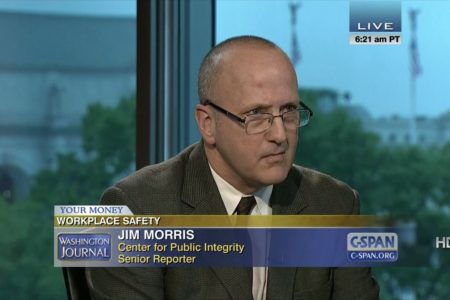
Then before the millennium, Morris moved to Washington, D.C. to continue his work at a news nonprofit.
“At the Center for Public Integrity, I started and ran what we call the environment and labor team, later the environment workers’ rights team. It no longer exists, but for 10 years, we did deep projects on everything from black lung among coal miners, to chronic air pollution in Texas and California and other states,” Morris said.
He worked at the Center for Public Integrity for over two decades, with his latest role as the Executive Editor.
He left in the summer of 2021 to launch his own news nonprofit, Public Health Watch.
Launching Public Health Watch in Austin, Texas
The idea for starting his own news organization has been years in the making.
“I began talking to people, other journalists, people in the public health space, professionals I had come to know over the years, almost three years ago, it was in very early 2019. It occurred to me that this could be viable. I had been in the business long enough. I had enough connections. I had done enough collaborations at the Center for Public Integrity, that I could make this work,” Morris said.
The start of the COVID-19 pandemic in early 2020 somewhat shifted his plans.
“Originally, I thought about just putting the organization in D.C., where I was living at the time. And in fact, I was in discussions with one of the universities up there. And then the pandemic hit, and everything sort of froze, everything just was put on hold. And as I thought about it, I’m from Texas, my wife is from Texas, I spent more than half my career down here. So the more I thought about it, the more I thought it might make more sense to put Public Health Watch in Texas,” Morris said.
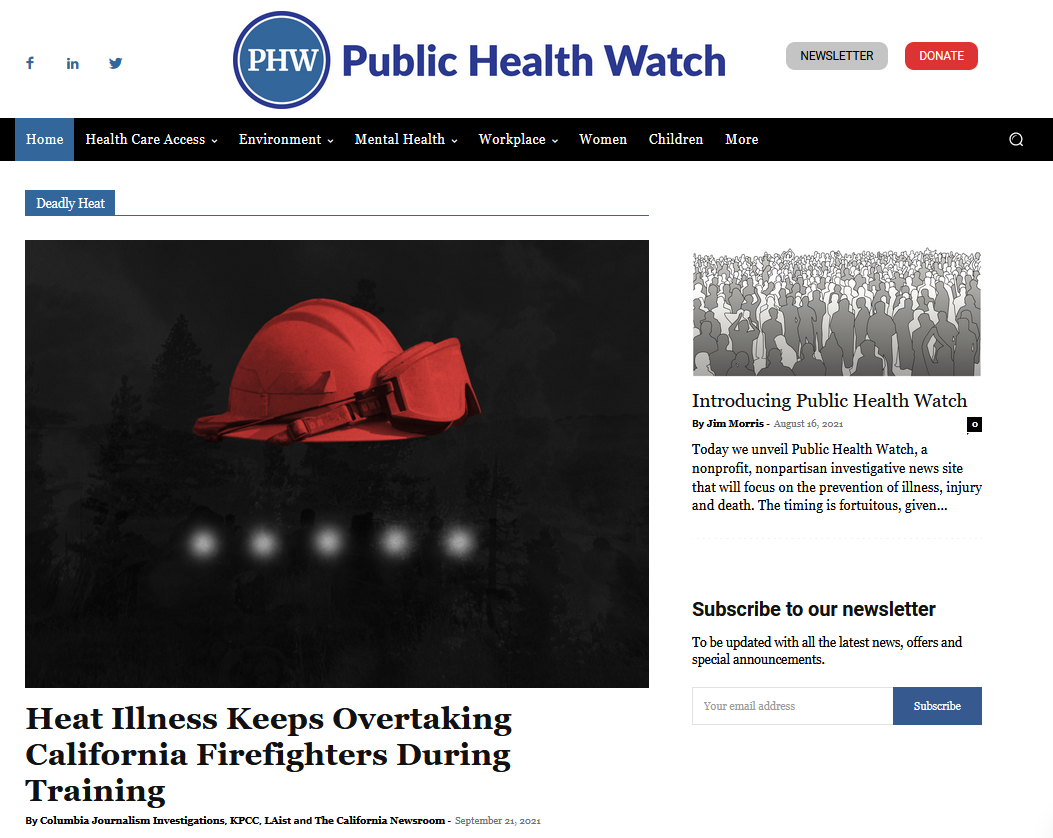
Although Public Health Watch has a national focus, Morris saw the need for a health-dedicated news outlet in Texas, since the state is consistently ranked at the bottom of several public health measures.
“Every year a couple of groups, the Commonwealth Fund and the Trust for America’s Health, do the state-by-state rankings in public health, and they’ll look at everything from air pollution to gun violence to child abuse, 40 or 50 different public health measures. And every year, Texas is at or near the bottom,” Morris said.
Unfortunately, Latinos in Texas are particularly likely to suffer from poor health. Latino children and other children of color lack access to healthy food, quality healthcare, and stable economic security due to historic systemic racism.
That’s why Morris and his small team of journalists at Public Health Watch launched in Austin, Texas – to help expose these inequities and compel institutions in command to change.
Other news organizations aim to tackle health news, but Public Health Watch is more focused on the underlying issues and determinants of public health.
“Why do we need another health site? We are about preventing disease, injury and death, not just treating it. Because this country spends a lot more on treating disease and injury than it does preventing it. So we’re going to be writing about things that can be done to prevent illness, injury, and death, instead of just what’s the latest drug to treat cancer,” Morris said.
So far, the team has written about issues like Texas workers dying from heat stroke, air pollution in the Bay Area, and chemical pollution in Houston.
The Ins and Outs of a Virtual Newsroom
While Morris is based in Austin, his staff is spread throughout the country.
He works with a team of 10 journalists.
“We are very lean, to put it mildly. So right now, because we’re still in growth mode, it’s essentially me and a very good group of freelance editors, reporters, photographers, and filmmakers, documentary filmmakers. Now these are folks who aren’t working full time for Public Health Watch, but they’re mostly folks I’ve worked with before,” Morris said.

Most of the journalists at Public Health Watch contribute regularly to other publications or work freelance. Morris is particularly thankful for the work of Susan White, a contributing editor for Public Health Watch.
“Susan has edited three Pulitzer winning projects for three different publications, which is no small feat. And she’s a remarkable editor. She works especially well with younger journalists. She’s great. And she has agreed to help me with editing some of the big projects we have coming out in the fall. I’m very lucky to have people like Susan, who are willing to help me and who believe in the mission of our organization,” Morris said.
Morris also has had help making connections in public radio through Howard Berkes, a retired investigative reporter with NPR who serves as the chairman of Public Health Watch’s board.
“Howard and I have had dozens of conversations with folks at NPR in Washington, but also public radio stations from Alaska to California to Georgia to Pennsylvania. And we have already developed a really close relationship with Texas Public Radio,” Morris said.
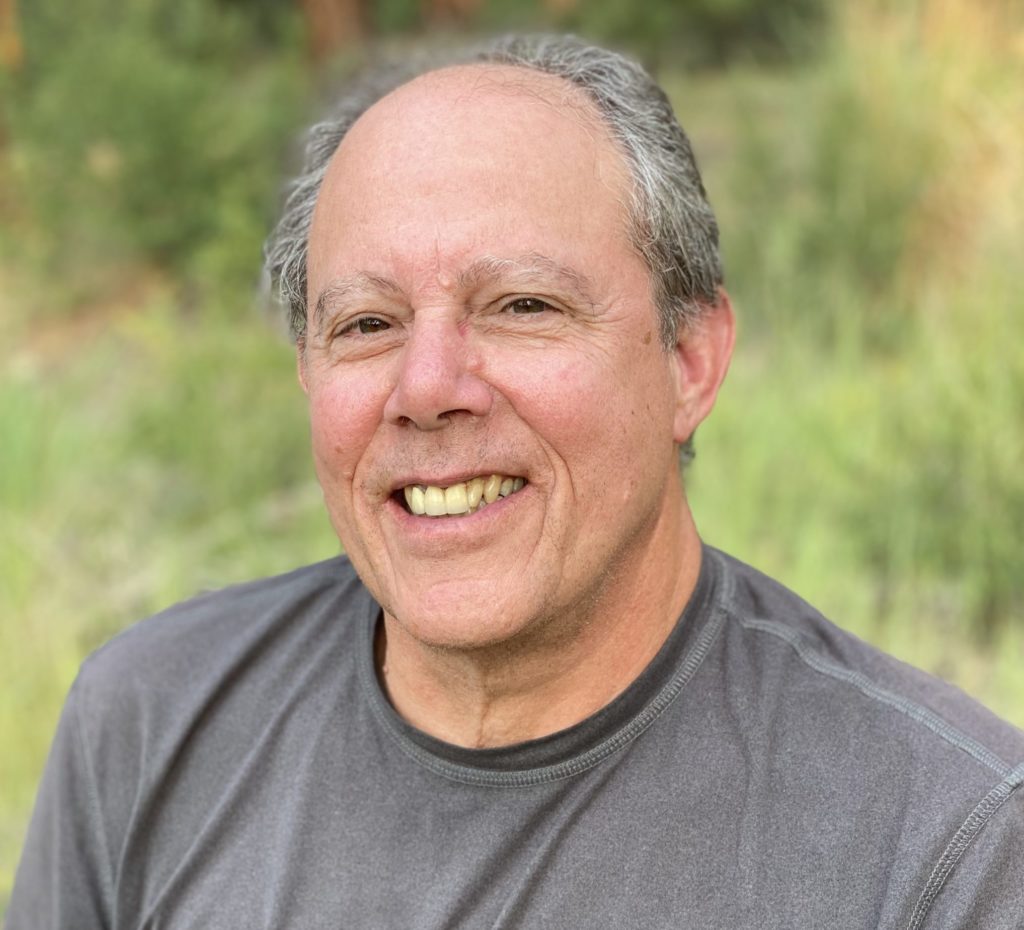
Public Health Watch is able to produce their content with funding from foundations.
“We have funding at this moment from nine foundations. We’ve got some individual contributions as well, but mostly foundations. We don’t plan to take advertising. It’s the same sort of nonprofit journalism model that the Center for Public Integrity, ProPublica, and The 19th have,” Morris said.
Public Health Watch is also sponsored by the Texas Democracy Foundation and has gotten donations from foundations like Arnold Ventures, the Episcopal Health Foundation, and the High Tide Foundation. Salud America! at UT Health San Antonio helps the cause by sharing Public Health Watch content.
While securing funding isn’t an issue, maintaining a newsroom across the country can be difficult.
Some writers live in Austin, but others are across the country in states like California and Florida.
“It’s tough, it’s not easy. You can use Zoom meetings and phone calls forever. But to me, it doesn’t take the place of being in a newsroom, at least occasionally. For now, we’re just gonna stay virtual. Our hope is to get a small office here in Austin at some point, so that those of us who are in Austin can get together regularly,” Morris said.
Goals to Expand for the Future
Public Health Watch is only just getting started.
Morris hopes that with the addition of more staff members, they can broaden their coverage.
“As we bring in more money, we do want to have a full-time core staff. And in my head, it would be maybe five or six people – a managing editor to sort of run the daily journalism operation, some sort of a data journalist, which we badly need. And then a couple of good, seasoned reporters,” Morris said.
The addition of interns from the University of Texas at Austin’s journalism school has also helped things go smoothly.
“I’m really happy to have them aboard. Our hope is to do a lot more work with UT Austin, their data journalism department as well.
“We’re just going to try to build it. It’ll be a slow process, probably. But we’re just happy to have launched and we’ll have a lot more work coming out in the next couple of months. And we hope people will see that we’re different than a lot of other news outlets that cover health or just do investigative reporting in general,” Morris said.
To learn more, visit publichealthwatch.org.
By The Numbers
1
Quick Survey
Can help you find out how chemically sensitive you are
This success story was produced by Salud America! with support from the Robert Wood Johnson Foundation.
The stories are intended for educational and informative purposes. References to specific policymakers, individuals, schools, policies, or companies have been included solely to advance these purposes and do not constitute an endorsement, sponsorship, or recommendation. Stories are based on and told by real community members and are the opinions and views of the individuals whose stories are told. Organization and activities described were not supported by Salud America! or the Robert Wood Johnson Foundation and do not necessarily represent the views of Salud America! or the Robert Wood Johnson Foundation.



